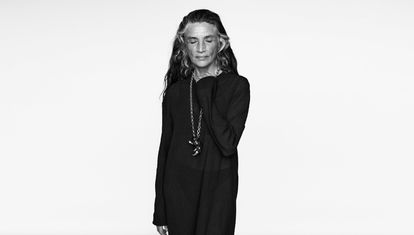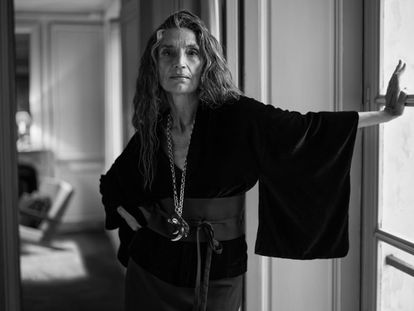Ángela Molina, 67, is the face of Zara’s new campaign. The Madrid-born actress — who won an honorary Goya award 2021 — is the model for Thirteen Pieces: a collection of timeless, minimalist garments in neutral tones, which exudes elegance and sophistication. The ad campaign’s photographs are black-and-white. In them, Molina appears relaxed, with her hair loose and gray.
The actress — who has earned national and international acclaim, thanks to films such as The Obscure Object of Desire, Camorra and Half of Heaven — is considered to be one of the most elegant women in Spain, as well as a symbol of natural aging. In an interview with EL PAÍS, Molina says she has little interest in cosmetic surgery: “That’s not beauty. I see it as impossible. I’m not interested. Would you like to see your grandmother with a fish face?”

The presentation of Ángela Molina as the image of Zara is yet another commitment by the fashion giant to showcase diversity in all its forms. With the choice of a 67-year-old woman as a model, the Spanish company has contributed to the fight against ageism — that is, the discrimination against older people based on age.
Spain’s Ministry of Health has also launched an awareness campaign about ageism. “Ageism is part of our understanding of aging itself and of our intergenerational relationships. It perpetuates stereotyped concepts of the elderly, limiting our understanding of the diversity that exists in old age. When this becomes a common attitude in our family and personal relationships and our professional practices, there are consequences both for the elderly and for society,” a spokesperson for the ministry noted. “Ageism was a term coined by Robert Butler in the 1960s, to refer to existing stereotypes and prejudices in relation to age. Research suggests that age discrimination may now be even more pervasive than sexism and racism.”
The Spanish government also offers advice regarding how to fight against this form of discrimination, such as understanding aging as another stage of life and countering negative and stereotyped concepts by recognizing the diversity in old age. Changes due to age must always be respected. In addition, the authorities ask for “the informed participation of older people in decision-making, especially in activities in which they are involved.”

Sign up for our weekly newsletter to get more English-language news coverage from EL PAÍS USA Edition




